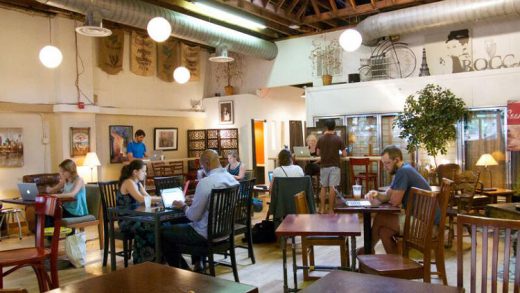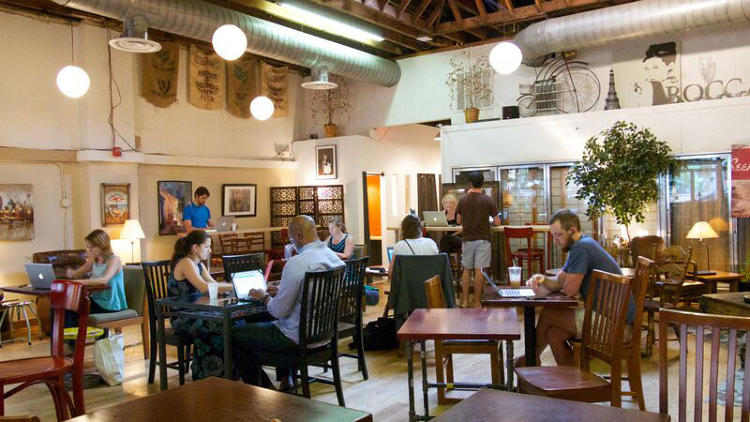Are Empty High-End Restaurants The Next Coworking Trend?
Turning empty offices into coworking spaces isn’t cheap: You need to pay rent and buy desks, chairs, perhaps a fancy coffeemaker for the kitchen. So while a coworking membership is often cheaper for entrepreneurs and freelancers than renting their own office, it can cost several hundred bucks a month depending on the city and how much access or privacy they want.
But what if freelancers, consultants and entrepreneurs worked out of existing space that sits unused during the day? Several entrepreneurs are testing that concept by turning restaurants or coffee shops into coworking spaces.
CoworkCafe opened last year inside of Arlington, Virginia, coffee shop Boccato. After 6 p.m., the area of the shop reserved for coworking opens up to the general public. For $150/month, CoworkCafe members get a $50 food credit, access to reserved space and high-speed Wi-Fi ($20 day passes are also available but don’t include any food credit). LinkLocale, more traditional coworking space in the area charges $30 per day, $175/month for flex space or $475/month for reserved space.
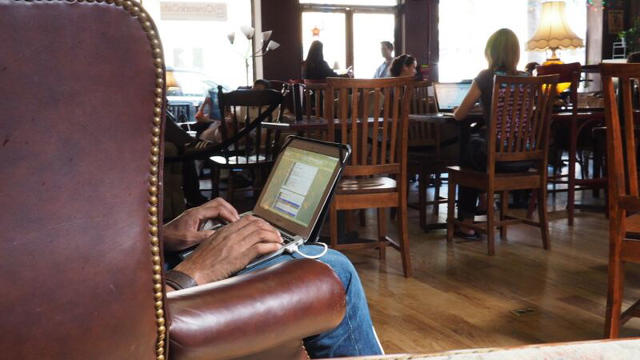
Aside from being cheaper than alternatives, cofounder David James says CoworkCafe offers a more relaxed vibe that many members (who include a novelist, software developers, marketing consultants, and nonprofit professionals) like. “Having a place that’s relaxed and comfortable is very good for creative type work,” he says. “There’s a certain feeling that you get in a place like this you can’t get in an office-type building. They really love the feeling of the space; they don’t want to be in a traditional office setting.”
New York-based content strategist Angela Pham echoes those sentiments about Spacious, a startup that turns high-end restaurants into coworking spaces during the day. “There’s a mental and psychological perk [to the setup],” she says. “There’s a different mood when you leave your home office versus a restaurant. I can either leave when I’m done with my work or I have a choice of staying for happy hour. It doesn’t feel like I’ve left a long workday.” She’s tried working from home or from Starbucks and found neither environment conducive to her work.
Spacious started operating in December and has expanded to several New York City restaurants, with plans to create new partnerships in San Francisco, Los Angeles, and London in the future, according to cofounder and CEO Preston Pesek. Spacious’ ideal restaurant partners are those who’ve “spent a lot of time thinking about the ambiance; we look for really good interior design,” he says. Proximity to public transportation is another key consideration. Spacious’ current restaurant partners include DBGB Kitchen & Bar and L’Apicio.
Elsewhere in New York, coworking memberships can cost $500 or more per month. For instance, a shared office desk costs $550/month at WeWork Charging Bull. Spacious charges members $95/month (or $29 for a day pass), which includes access to all Spacious locations, Wi-Fi, coffee, and tea. “Because of the way we’ve structured our partnerships [profit-sharing with the restaurants], we don’t have to sign a lease, we don’t have to build out, we don’t have to buy furniture,” Pesek says. “As a result, we can offer a pretty tremendous value and the numbers still work for everyone that’s involved.”
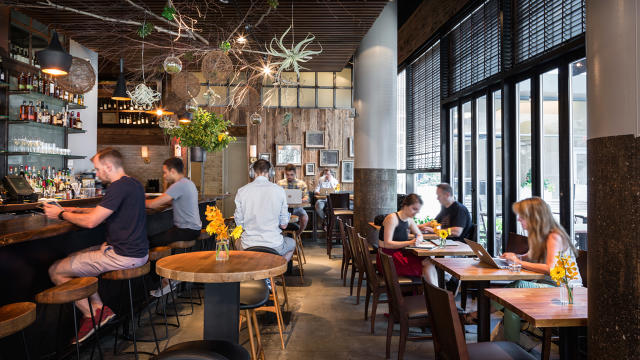
Spacious uses a work-friendly music playlist to help mask the sound of members’ phone calls or conversations to those around them. For those that need more privacy than the restaurant dining room, each Spacious location also has a private dining room that members can rent as conference rooms by the hour (conference rooms have portable whiteboards available). It also gives members access to happy hour deals at its restaurants so they can transition seamlessly into drinks or dinner.
One perk you won’t find at these hospitality/coworking hybrids: dedicated desks and storage. Some traditional coworking spaces let members rent an assigned desk where they can set up monitors and perhaps pin up a few personal photos. For the non-dedicated desk set, some spaces have lockers for storing personal items when they’re not in use. Spacious strives to let restaurant partners “preserve their state of normal” as Pesek says, so you won’t find lockers or super-sized computer monitors there. For those used to those creature comforts of an office, this concept may not work, but many laptop-toting nomadic workers don’t need dedicated space or storage anyway.
In a different twist on repurposing unused space for coworking, Staples announced earlier this year that it was partnering with Workbar to turn a portion of three retail locations outside of Boston into coworking spaces, perhaps a nod to declining brick-and-mortar sales and the need to monetize their large retail spaces in other ways. Several years ago, a startup called SpareChair hoped to be become the Airbnb of coworking by letting businesses or individuals rent out spare desks to others (SpareChair’s website no longer works and the company hasn’t tweeted since last October).
Pesek sees this business model as a win for its members (a mix of the 1099 set and employees with flexible work arrangements) and restaurant owners. “We’re not disrupting anybody or displacing anybody,” he says. “We’re finding something that is needed and connecting people who could use these spaces.”
Related: This Coworking Company Turns Restaurants Into Temporary Offices During The Day
Susan Johnston Taylor has covered personal finance and business for publications including the Boston Globe, Entrepreneur.com, and USNews.com.
Related Video: Visit The Offices Of Stack Exchange And Refinery29
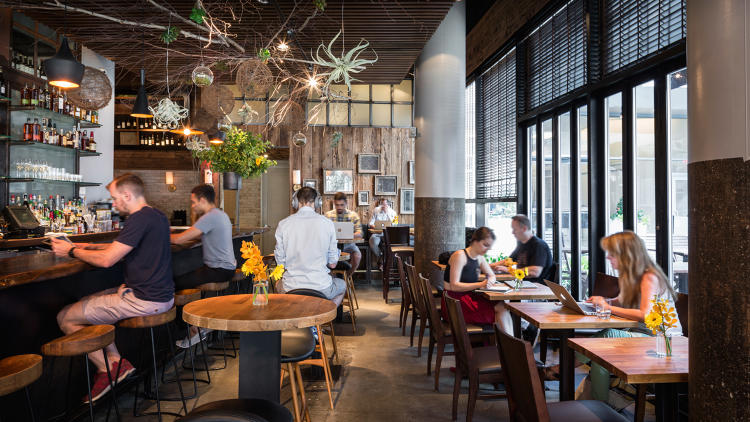
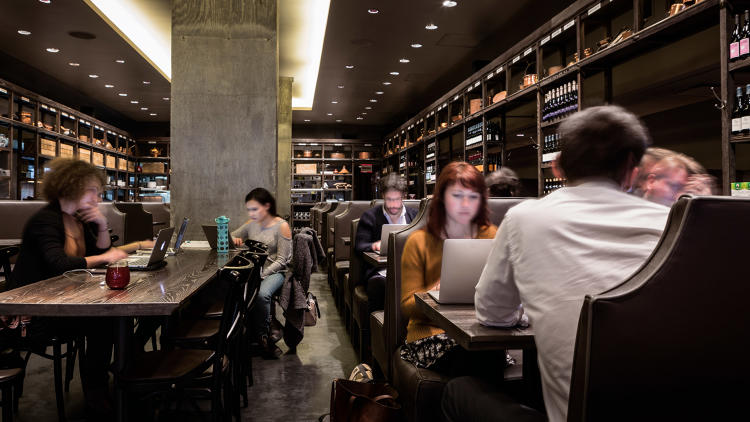
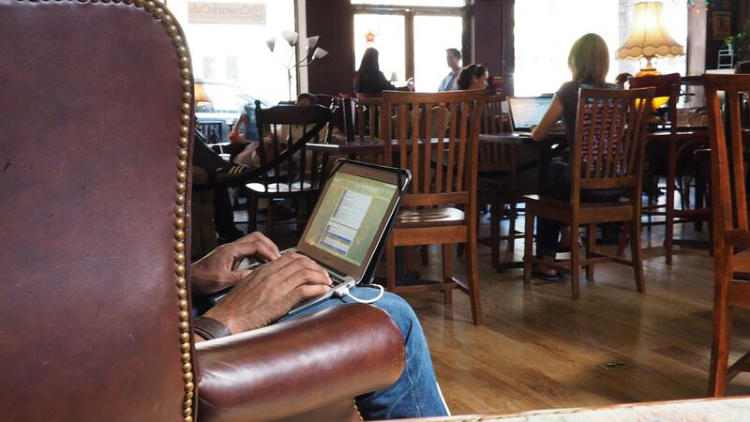
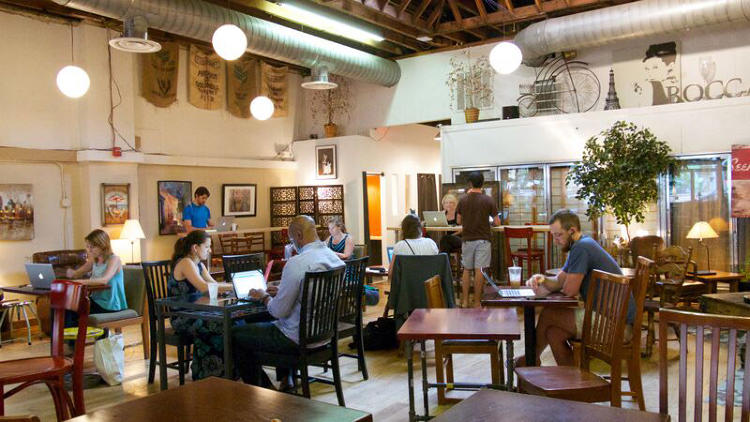
Fast Company , Read Full Story
(101)

